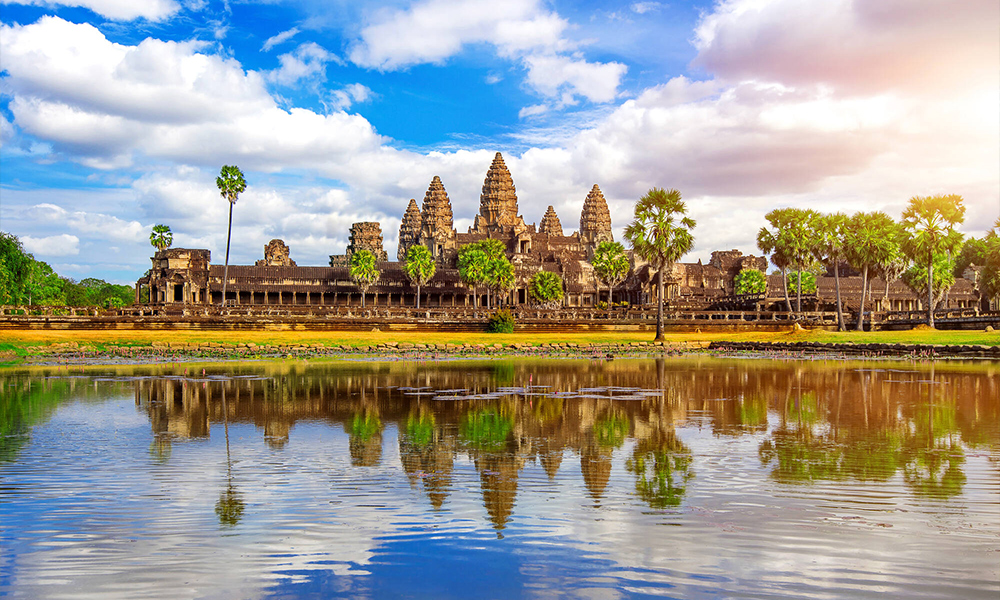Cambodia, a Southeast Asian gem, offers a blend of ancient history, vibrant culture, and stunning landscapes. The country is most famous for Angkor Wat, the world’s largest religious monument and a UNESCO World Heritage Site, located in Siem Reap. Beyond Angkor, visitors can explore other temples like Ta Prohm and Bayon, renowned for their intricate carvings and mystical ambiance. The capital city, Phnom Penh, is home to the majestic Royal Palace, Silver Pagoda, and sobering sites like the Tuol Sleng Genocide Museum and Killing Fields, which reflect Cambodia’s turbulent history. For nature lovers, Tonle Sap Lake and its floating villages offer a unique cultural experience, while the lush Cardamom Mountains are perfect for eco-adventures. Cambodia’s beaches, such as those on Koh Rong and Sihanoukville, boast white sands and crystal-clear waters. The country is also known for its delicious cuisine, including dishes like amok and kuy teav. Visitors will be captivated by the warmth of the Cambodian people, often referred to as the “Khmer smile.” The affordable cost of travel makes Cambodia a favorite destination for backpackers and luxury travelers alike. With its mix of history, culture, and natural beauty, Cambodia promises an unforgettable journey.
Interesting facts about Cambodia
Ancient Civilization
Cambodia is home to the Angkor Wat temple, the largest religious monument in the world, built during the Khmer Empire in the 12th century.
Official Name
The country’s official name is the Kingdom of Cambodia.
Capital City
Phnom Penh, located at the confluence of the Mekong and Tonle Sap rivers, is Cambodia's bustling capital.
Population
It is the 15th most populous country in the world, with over 96 million people.
Khmer Language
The official language is Khmer, and the local currency is the Cambodian Riel, though US dollars are widely used.
Population
Cambodia has a population of over 16 million people, with the majority following Theravada Buddhism.
Tragic History
The country experienced the Khmer Rouge regime (1975–1979), during which an estimated 1.7 million people died, and sites like the Killing Fields commemorate this dark chapter.
National Symbol
Angkor Wat is featured on Cambodia’s national flag, making it one of the few countries to have a building as its central emblem.
Traditional Dance
Apsara dance, an elegant and intricate art form, reflects the country’s rich cultural heritage.
Cuisine
Cambodian food includes unique dishes like fish amok (steamed fish curry) and num pang (Khmer sandwich), with influences from neighboring countries.
Wildlife
Cambodia has rich biodiversity, with protected areas like the Cardamom Mountains and rare species like the Irrawaddy dolphin.
Water Festival
The Bon Om Touk (Water Festival) celebrates the reversing flow of the Tonle Sap River and marks an important cultural event.
Economy
Cambodia’s economy relies heavily on agriculture, tourism, and garment exports.
Longest River
The Mekong River runs through Cambodia, providing vital resources and a lifeline for many communities.
Friendly Locals
Cambodians are renowned for their warm hospitality and resilience, often welcoming visitors with a smile.



